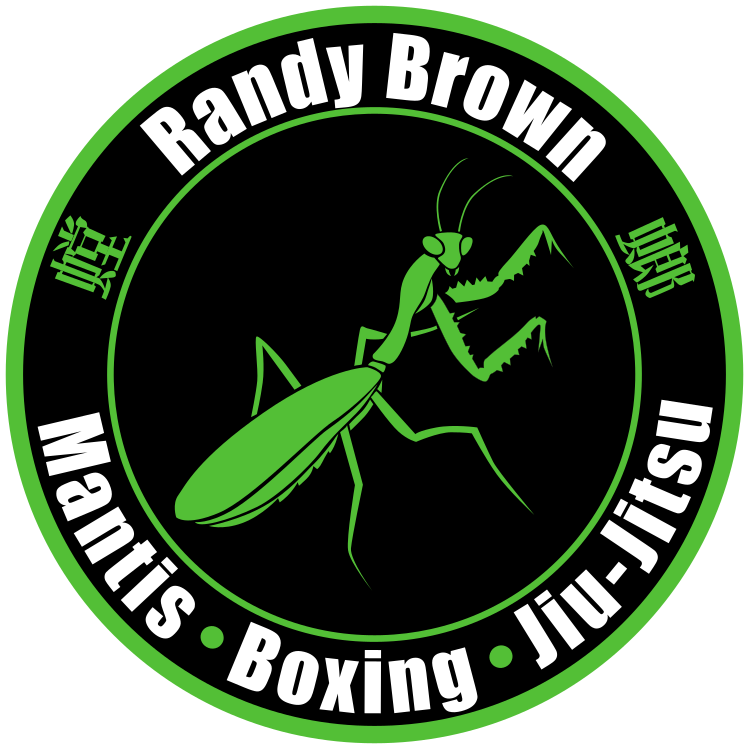Speed Kills
In martial arts there is a significant importance placed on speed. Why shouldn't there be, this trait is often times what gives one fighter an advantage over another right? Yes. The problem is, speed in 'training', has more negative effects than positive.
All too often speed is the culprit that inhibits our learning and growth when training how to fight. This is easily explained by the emotional state of the fighter who is stressed out in unfamiliar territory; confused, and/or trying to multi-task. Once we can slow down the training/sparring, we see that there is much to learn when we play things out at a decreased pace.
Example
While footwork training two students are going too fast for their skill level. One has never done the drills at all and is green as a Mantis. At the speed they are going, the two of them are wandering all over the ring with no concept of where they are, and why they are moving. Just moving for the sake of moving. They are failing to use all of their newly trained footwork skills, the same skills that they just trained earlier in the class; instead opting for speed. This causes them to revert back to what they had done the most, thereby losing possible advantages gained by reinforcing the lesson learned in class.
When we are learning something like footwork, if someone says, "Freeze!", can you explain the reason you stepped where you did on the last step? Can you describe the advantages and disadvantages of your current position? Can you map out the last 3 moves before you landed there? Or, what your opponent has to do from here to counter you?
If not, then you could benefit greatly from decreasing speed. Slowing down the footwork allows us to see our mistakes. We can then either do it over again, or move on knowing next time not to repeat our previous mistake because we were running at a speed where we could analyze instead of just react.
This principle applies to other aspects of combat training as well, and is not restricted to just footwork. Blocking is a great example. Our partner is throwing punches at us. We are blocking away. They speed up. We start getting hit more often than not. Now we're in survival mode, not training/learning mode. If our partner slows the pace down to 'success, success, fail, success, fail, success' from 'fail, fail, fail, success, fail, success, fail, fail' then we are able to learn and fix. Once we start succeeding too consistently it's time for our partner to ramp the speed up a notch or two till we again fail once in a while.
SPEED IS A MUST!
Do not mistake this as advocating an abolition of speed, as speed is a necessary component when introduced at the right time in the training process. If training is slow all the time, you will never build up the reactions, kinisthetic feedback, or gain the confidence to block for real. So speed has to be a part of the training.
Speed is used heavily to test skills, to determine if we have attained and retained a technique, movement, skill, reaction, but has to go away if failure is the higher percentage of results, or if new material is introduced.
When going fast, we have no ability to analyze our actions. We are throwing our training to the 'Fates'. Speed increases with skill, not the other way around.
"Fast as you can, slow as you must!" and "Slow to learn. Fast to Test." - unnamed source
The DO OVER
A highly productive training environment is evident when sparring/rolling and you are able to ask your partner for a 'do over'. Yes, a 'do over'. A chance to go back one, two, or three positions and try the same move over again to see why you failed. Perhaps you got your De La Riva hook in, but you were too slow and missed the sweep, only realizing after the fact. It could be months before you end up there again, so repeating the setup then and there is a perfect way to try again.
A real fight doesn't give you that opportunity, but our training environment, and friends in the dojo are able and willing to help. This produces better fighter's than an ultra competitive atmosphere where no one ever wants to see their partners succeed. In martial arts, we're only as good as those around us. If you don't help elevate your partners/classmates, then your skills will eventually plateau until you or someone else helps others rise up.
(original post - April 11, 2009 - updated September 14, 2016)
